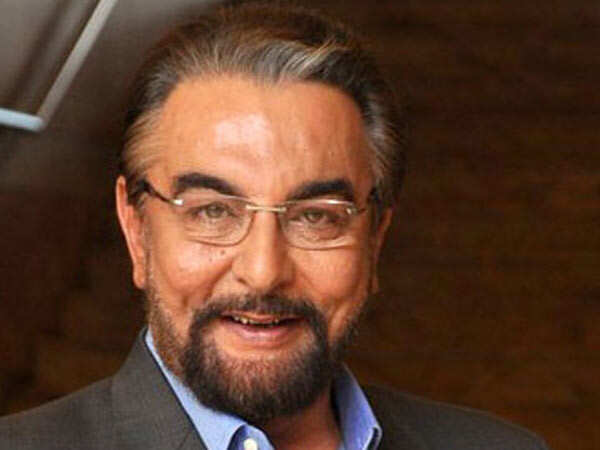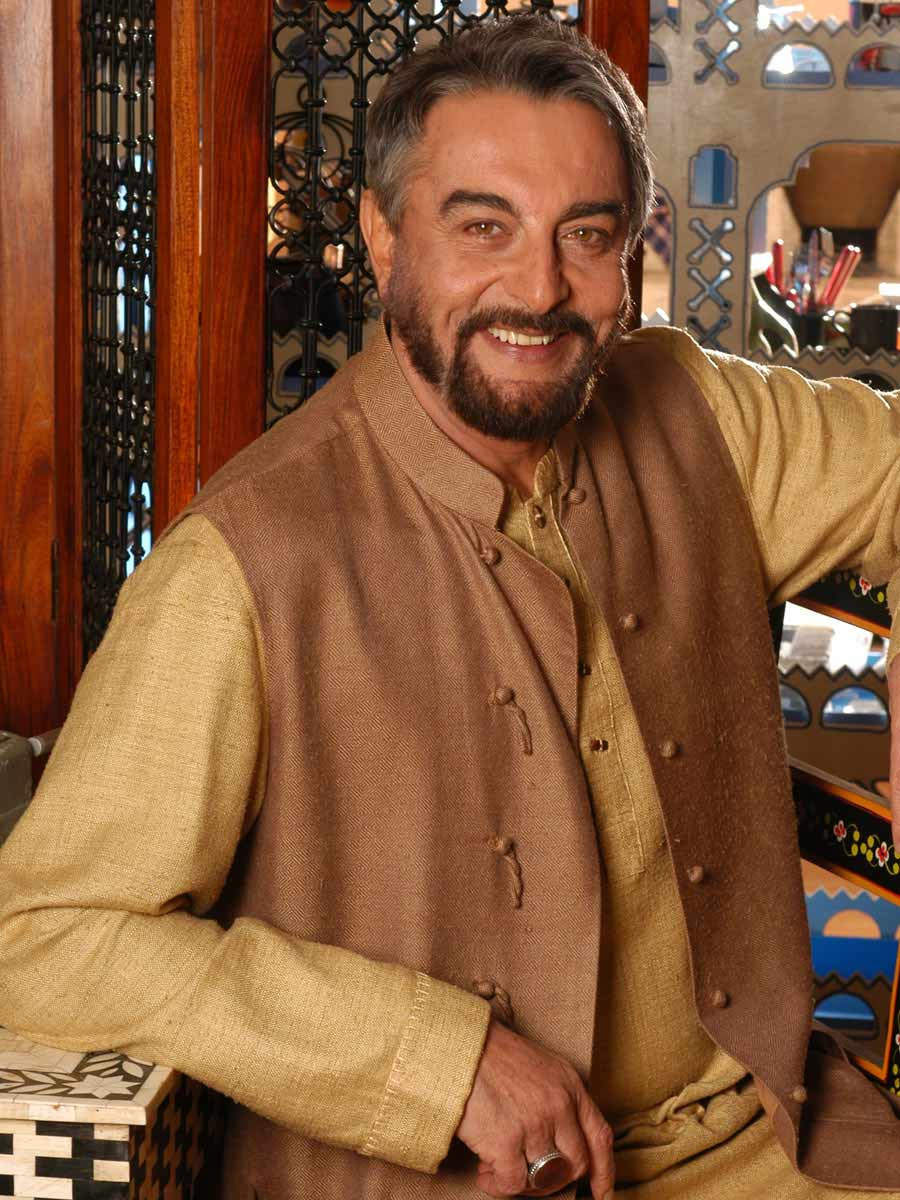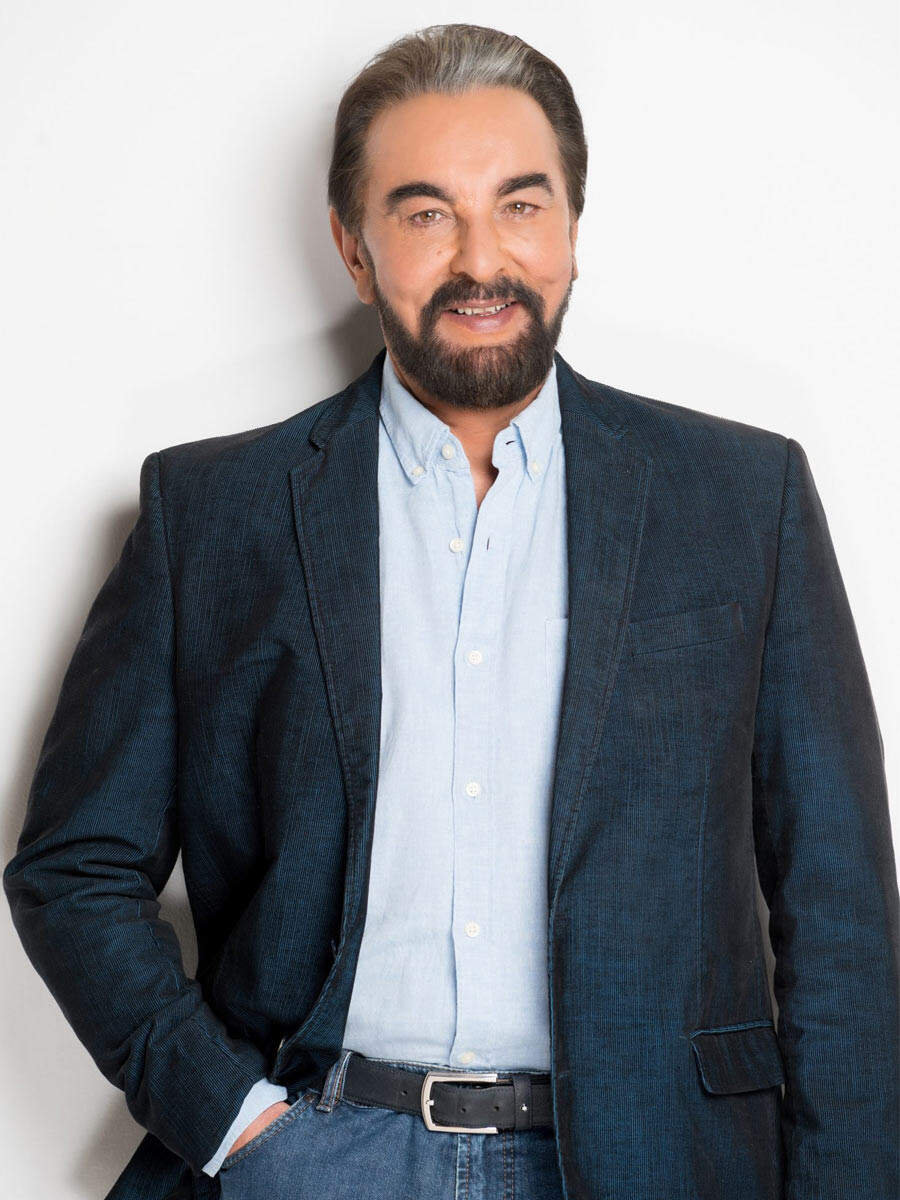
Kabir Bedi has just come out with a book on his life called Stories I Must Tell. He discusses the autobiography and his reasons for sharing his stories...
He’s India’s most-famous export to the Western cinema. Much before Om Puri, Irrfan Khan or Priyanka Chopra burst onto the international acting scene, there was Kabir Bedi, paving the way for others. He lived in America for more than two decades, carving a niche for himself doing series like The Bold And The Beautiful and multi-starrers like Ashanti, where he rubbed shoulders with the likes of Miachel Caine and Omar Sharif. His most famous role abroad was that of Sandokan. The Italian series made him a household name across Europe. He’s considered an icon in Italy. They’ve bestowed him with the title of Cavaliere (Knight) of the Order of Merit of the Italian Republic, their highest civilian honour. Kabir has been romantically involved with a bevy of beauties and remained friends with them all, despite the break-ups. He remains a romantic at heart, having found the perfect life partner in current wife Parveen Dusanj, despite the 30-year difference in their ages. Presenting excerpts from a candid interview with the man who has been a journalist, model, adman, actor and writer in his rich, varied life.
In the initial parts of your autobiography, Stories I Must Tell, you sound like someone in their twenties and then there is a certain maturity in the later parts. It’s like time travel of sorts.
It’s time travel for me because I had to go back to that moment in time and focus on it. Relive it, to bring out all its nuances. I’ve written things out like a scene because I remember scenes very well. The idea was to take the reader back with me and let him feel the emotional pulse of
the moment.
You’ve mentioned you’re a direct descendant of Guru Nanak. Is that a historical fact?
The Bedis are said to be the direct descendants of Guru Nanak. The Bedis of Dera Baba Nanak are certainly his descendants and I presume there are others too.
You became a Buddhist monk for one year in Rangoon while you were young. You had your hair shorn, lived on alms...what was the experience like?
I was taught Vipassana by Mahasi Sayadaw. He’s the one who taught Goenka ji. Learning Vipassana at that age was life altering. It was a way of becoming much more aware of yourself, of your surroundings. It tells you how your thoughts run you and how to calm your thoughts and look into the spaces in between to find your real essence. It instilled a belief that you need to be compassionate towards other beings on this planet, who are suffering and who are less fortunate than you.
Do you agree with the Buddhist philosophy that life is suffering?
The Buddha was a far wiser man than me. Obviously there is an enormous amount of suffering in life. My belief is that anything I believe in, I bring into reality. And therefore, I didn’t want to believe that life is suffering. While I’ve the greatest respect for Buddhism, for its emphasis on meditation, on compassion towards all, the sheer wisdom of the Buddha, I didn’t become a Buddhist because to do so I’d have to make suffering the centre of my belief. And I didn’t want to do that.
Your tremendous popularity in Europe somehow didn’t translate into stardom in Bollywood.
What happened in Italy, in Europe was phenomenal. I didn’t come back to India after that. I went to Hollywood and spent 25 years of my life outside India. Bollywood is where I began. It gave me a name which led to the Italians discovering me. Then, Bollywood also came back into my life through films like Khoon Bhari Maang in the ’90s, which proved to be the second lease of life. I went back to America after that to do The Bold And The Beautiful, which again gave me fans around the world. It was watched by 350 million people in a day. Bollywood has been in and out of my life. I never wanted to live my whole life abroad. My last big role in Bollywood was in Mohenjodaro, the Hrithik Roshan starrer, where I played the emperor. And Bollywood can still offer me wonderful roles. The journey isn’t over.
The film industry is said to be a place where you’re supposed to have great people skills but you’ve described yourself as being shy and introverted.
That’s one of the problems I had in fact. Networking, hanging out with people, constantly creating little social circles, that’s how Bollywood conducts its business. I should have been more skilful, I should have been more outgoing as the lack of it has certainly affected me. I’m who I’m and at heart I’m a shy person.
You started off by working for All India Radio. Interviewing The Beatles for them was one of your first assignments but that recording doesn’t exist any more.
I’ve tried hard to get that recording. We’re talking about the mid-’60s here and very few people had a tape-recorder at the time. Those days, the radio guys used to reuse the tapes to save money and my interview with The Beatles unfortunately was taped over. I was so angry, so disgusted with that, that I decided to quit the organisation and do something else. So I guess I have to thank that faux pas for my acting career.

Your list of friends during your formative years seem to be a list of who’s who from Delhi elite.
Some of the people who are big today were with me at St Stephens in Delhi. Then, I’ve also written about my friendship with Rajiv and Sanjay Gandhi. They helped shape India’s destiny in years to come but back then we were just a bunch of kids playing around with toy trains and toy cars under the stern gaze of Indu aunty. And having the Prime Minister Of India, Jawaharlal Nehru, play with us, leaving aside the worries of his office for a while. After many years, when I went back to the Teen Murti House, it didn’t seem as big as it did during my childhood.
Your father, Baba Pyare Lal Singh Bedi and mother, Freda Bedi, were involved in India’s freedom struggle. Your mom was English and yet she fought against the British...
She was a remarkable woman who led a very idealistic life. She didn’t like colonialism. She didn’t like the fact that one nation was ruling over another. Coming from Oxford, where they met, they could have got the best jobs in Indian Civil Service but they sacrificed all that to fight for India’s freedom.
Your parents had a very unconventional marriage. Did that influence you later in life as you went on to have many unconventional relationships yourself?
Their example led me to believe that you can live life on your own terms and you don’t have to necessarily follow the tried and the tested route. You can still thrive, still make a success of your life. He became a spiritual guru in Italy. She became a Buddhist monk. They lived across continents but were always there for each other when needed and remained friends throughout.
When your father first met Protima, he predicted she’d be a dancer…
He had the gift of psychic foresight. He has a vision of the Universe where everything was connected, from the smallest rock to the distant suns. What he found was that there weren’t enough people in India who wanted him to talk about those things. They saw him more as a jyotishi (astrologer). In Italy he found whole communities of people wanting to discuss his vision, that’s why he moved to Italy for the last 20 years of his life. He got to Italy four years before I did. It’s not as if he moved there because I became Sandokan.
You had a spiritual experience while you were in Israel.
Yes.Spirits awoke me and I saw a vision of Jerusalem that Christ must have seen 2000 years ago. It was a very moving, very humbling experience.
You’ve been quite candid about all your relationships, be it with Protima Gupta, Parveen Babi, Susan Humphreys, Nikki Moolgaoker or Parveen Dusanj…
I’ve only written about my known relationships. There’s no secret about them. People just see the outside of it. That I moved from one beautiful woman to another. I’ve described what actually happened in great emotional terms.

Putting it all out on paper, did it offer you a sense of closure, a sense of completion?
In one sense, yes. It was cathartic. It was revelatory. I looked at everything with the hindsight born of age and was better able to relate to the person I was then, the people they were then. By going back I made my peace with it.
You’ve said in the book that Parveen Babi was already married to a Pakistani citizen and hence couldn’t marry you…
I’ve said that yes and in my own way proved that it’s true. Parveen told me she was already married and hence couldn’t marry me and I accepted it as being a part of our unusual relationship. Details are there in the book. Let the people discover them when they read it.
The pain with which you’ve written about your son Siddharth’s death is palpable. What made you share such a traumatic chapter from your life?
I chose to share the story of my son’s battle with schizophrenia because I wanted people to understand more about it. It’s not just the person going through it who suffers. The tragedy affects his entire family as well.
I want to remove the stigma that is attached to mental illness. These conditions are treatable. Many are manageable. Many have led productive lives even after that. I shared everything I could in the hope that I’ll help those who are afflicted by it and those who care for the afflicted.
Next Story